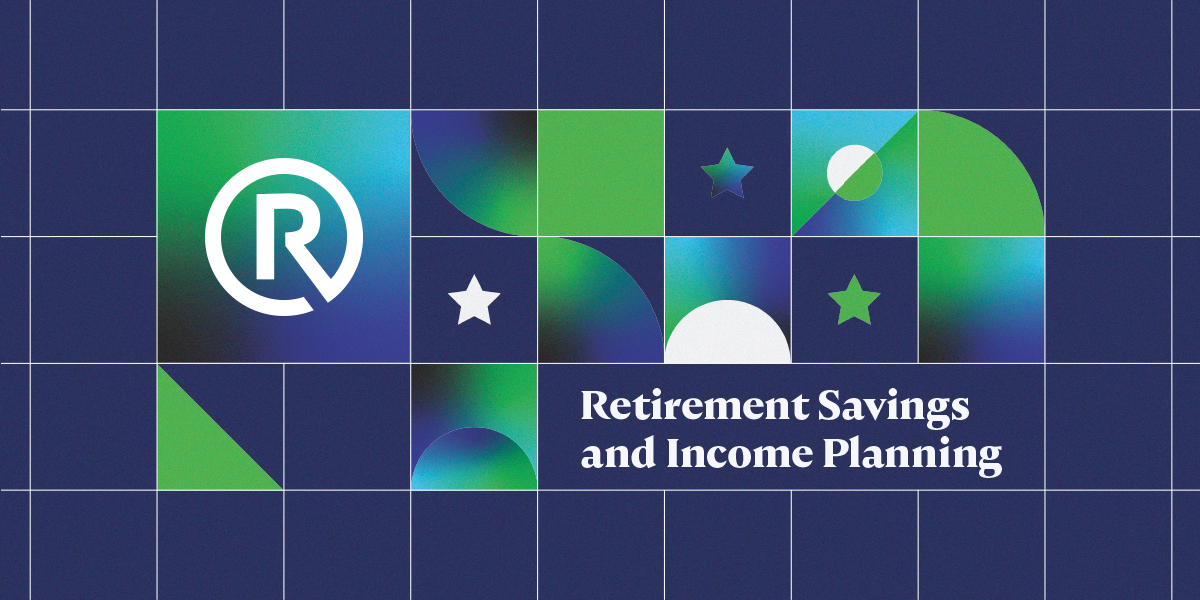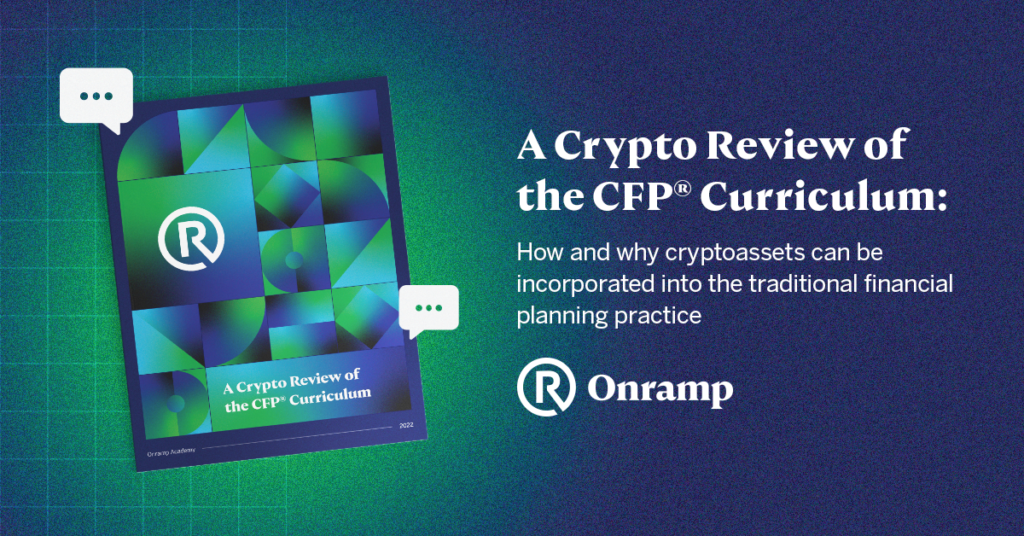
A Crypto Review of the CFP® Curriculum: Retirement Savings and Income Planning (Part 6 of 8)
Have your clients asked if they can add cryptocurrency to their retirement accounts? More and more advisors would likely answer yes to this question as client demand and excitement continues to grow. Currently, most advisors are unable to fulfill this request in retirement accounts due to a lack of tools and integration. As of early 2022, the number of cryptoasset funds are growing but do not meet the standards of many investment departments due to lack of correlation with underlying cryptoassets (such as the BITO ETF being based on Bitcoin futures contracts rather than Bitcoin itself). Other funds, like GBTC, have high expense ratios (around 2% currently), and fluctuate from their NAV. Others allow clients to invest into a diversified decentralized finance portfolio of equities, but this is not the same as actually owning cryptoassets. In 2022 and beyond, opportunities for investing into digital assets directly within retirement accounts could become available. Several retirement planning opportunities related to cryptoassets are discussed below.
Cryptoassets Impact on Retiree Income Planning
When it comes to retirement income planning, cryptoassets present opportunities financial advisors should consider for their clients.
Cryptoassets can provide higher yield than traditional assets through lending and staking.The higher yield can be used to supplement other income streams to help retirees reach their income needs. As with all investments, lending and staking cryptoassets involve risks, liquidity limitations, and tax implications that should be considered when evaluating their place in a client’s income plan.
Evaluating cash positions for a retirement income plan is important for financial advisors, especially with interest rates on cash accounts sitting near 0%. Stablecoins can offer the liquidity of traditional money market funds but yield significantly higher rates. Before deciding on using a stablecoin, financial advisors should understand the company issuing the stablecoin, how the yield is generated, and any other important risks that need to be considered for their clients cash and income producing positions.
Cryptoassets offer more than yield generating opportunities. They can also be used to create income streams from smart contract royalties and commissions. By selling or collecting NFTs, clients can create a passive income stream that will generate income for as long as the client owns the cryptoasset. The cryptoasset could also be sold in the future for a capital gain.
Another opportunity for creating additional income streams through cryptoassets is through P2E, or play to earn gaming. Clients can generate income by participating in Play To Earn gaming and earning rewards or by leasing out cryptoassets for the game.
Much like their traditional asset counterparts, cryptoassets that have appreciated can also be sold to create income much like dividends but in a more tax advantaged manner.
Cryptoassets in Qualified Retirement Accounts
As cryptoassets continue to find their way into asset allocation strategies, investors and advisors alike will be on the lookout for ways to grow these assets in a tax-advantaged manner. To date, the vast majority of crypto investors have been holding their cryptoassets in non-qualified accounts. This could be attributed largely due to the popularity of centralized exchanges such as Coinbase, Gemini, and a variety of others, which currently do not offer tax-advantaged accounts. Additionally, prior to 2021, the majority of financial advisors were not advising their clients on cryptoasset financial planning strategies. With this visibility comes financial advice. We anticipate 2022 will be a year of adoption for crypto IRAs.
Crypto IRAs are structured similarly to any other IRA, but hold cryptoassets instead of traditional assets. The tax benefits remain intact. By parking cryptoassets within a tax-advantaged IRA, investors avoid paying capital gains tax on each of their transactions, potentially leading to significant tax savings in the long run. Furthermore, by opening and funding a crypto Roth IRA, taxes on cryptoasset gains could be avoided altogether.
Now that we have discussed the upside of placing cryptoassets in qualified accounts, we wanted to touch on one key disadvantage as well. Given the youth of crypto as an asset class, volatility remains prevalent. In non-qualified accounts, volatility could be seen as a benefit by some, allowing investors to take advantage of tax-loss harvesting strategies. This is not an option within the IRA structure, since tax is deferred within traditional IRAs and removed in Roth IRAs.
Today, companies such as Alto IRA, Rocket Dollar, Directed IRA, Choice IRA, and a handful of others allow investors to open self-directed crypto IRA accounts. Some of these include both traditional and Roth IRAs, providing flexibility from the tax planning standpoint. We anticipate a growing list of companies entering into the self-directed crypto IRA space in 2022. Additionally, it is likely that advisors will soon have the opportunity to open discretionary crypto IRA accounts on their clients behalf. The investment and tax planning strategies will expand significantly as these offerings are rolled out.

Access the Full Report
Our full report is available for all Onramp Academy users. The intent of the report is to provide financial advisors with a resource to compare their current credentials with the potential credential curriculum of the future. The report is 55 pages in length and includes cryptoasset commentary on each of the eight sections of the CFP® exam (including the newly minted Psychology of Financial Planning section). In our opinion, it’s a must-read for every financial professional as the space evolves in the digital realm!
If you are not an Academy member, use the form below and we will email you the report.
As always, educate before you allocate!
With gratitude, Your Onramp family
